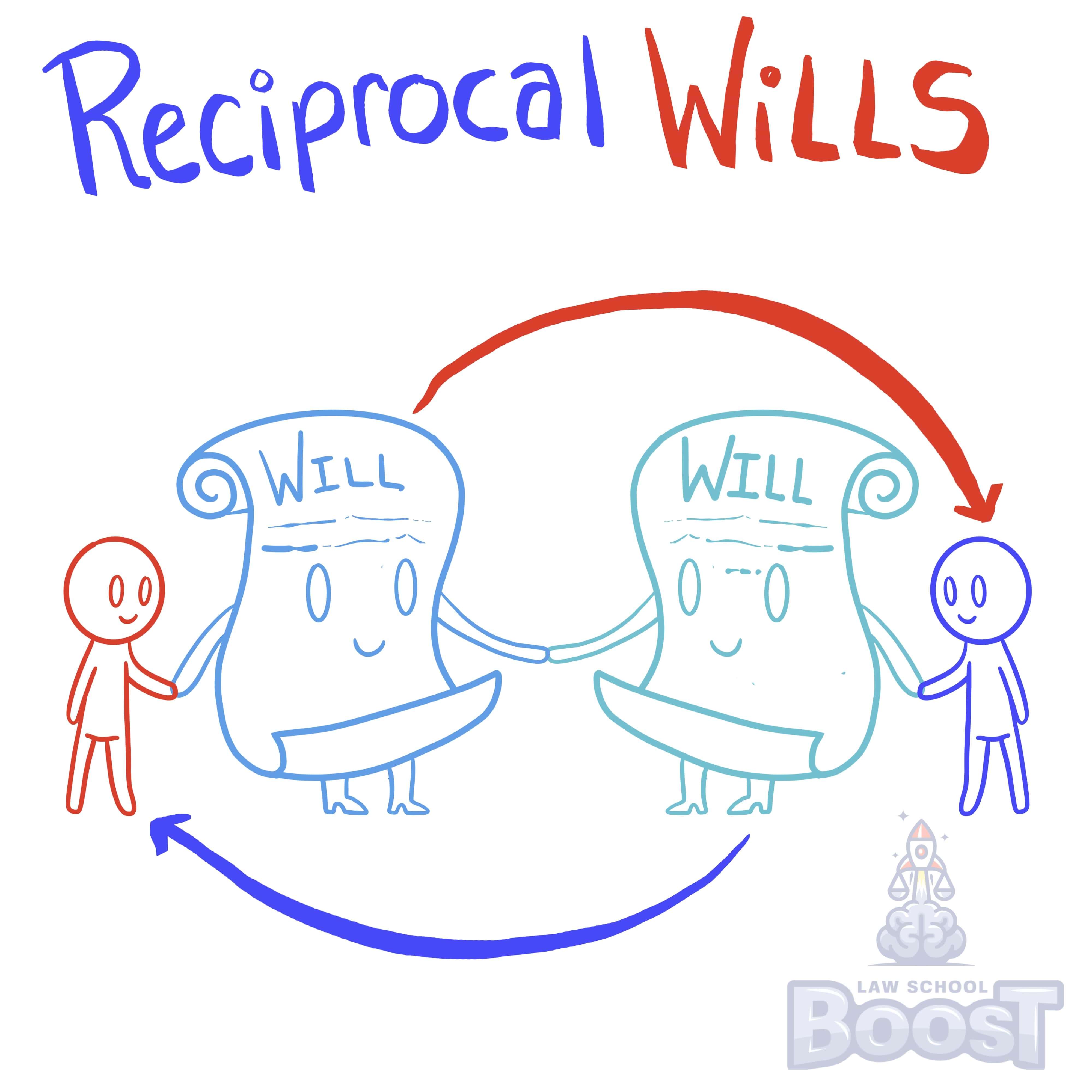😭
Wills • Contracts and Wills
WILLS#022
Legal Definition
Mutual wills are separate, distinct wills executed by different testators but contain similar, reciprocal provisions. Note that where the testator accidentally signs the wrong one (a mistake in the execution), the court will reform the wills and probate them.
Plain English Explanation
Mutual wills are common for married people who have very similar, aligned interests. If Bob and Amy were married and had a kid, Bob may want a will that says, "When I die, I want half of what I own to go to Amy and the other half to go to our child." Similarly, Amy may want a will that says, "When I die, I want half of what I own to go to Bob and the other half to go to our child." These are called reciprocal provisions.
As you can imagine, the scenario when Bob and Amy are filling these wills out probably involves them sitting next to each other with both of the documents in front of them. It's possible that, due to mistake, Amy would sign Bob's and Bob would sign Amy's. If this happens, a court will reform the wills, effectively swapping their signatures to make sure that probate can accurately reflect their desires rather than tossing them out due to the defect.
As you can imagine, the scenario when Bob and Amy are filling these wills out probably involves them sitting next to each other with both of the documents in front of them. It's possible that, due to mistake, Amy would sign Bob's and Bob would sign Amy's. If this happens, a court will reform the wills, effectively swapping their signatures to make sure that probate can accurately reflect their desires rather than tossing them out due to the defect.
Hypothetical
Hypo 1: Bob and Sam, brothers, have similar wills, each leaving their possessions to the other. In a mix-up at the lawyer's office, they sign each other's wills.
Result: The court corrects the mistake by reforming the wills, ensuring the brothers' assets go to the intended recipient.
Hypo 2:
Bob writes a will leaving everything to his friend Sam. Sam writes a will leaving everything to his sister. There's no mistake in signing, but later, Bob changes his mind and rewrites his will to leave everything to a charity, not informing Sam. Result: The rule does not apply here because the wills are not mutual or reciprocal, and there is no mistake in execution. Bob's new will stands as written.
Result: The court corrects the mistake by reforming the wills, ensuring the brothers' assets go to the intended recipient.
Hypo 2:
Bob writes a will leaving everything to his friend Sam. Sam writes a will leaving everything to his sister. There's no mistake in signing, but later, Bob changes his mind and rewrites his will to leave everything to a charity, not informing Sam. Result: The rule does not apply here because the wills are not mutual or reciprocal, and there is no mistake in execution. Bob's new will stands as written.
Visual Aids



